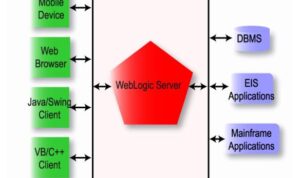Delving into the realm of VPS cloud server, this introduction aims to provide a comprehensive understanding of its significance in the digital landscape.
As we unravel the layers of VPS cloud server technology, we will uncover its advantages, functionalities, and practical applications that set it apart from traditional hosting solutions.
Introduction to VPS Cloud Server
Virtual Private Server (VPS) cloud hosting is a type of hosting that utilizes virtualization technology to provide dedicated resources on a virtual server within a larger physical server. This offers a higher level of control, security, and performance compared to traditional shared hosting.
Benefits of VPS Cloud Server
- Increased Performance: VPS cloud servers offer higher performance levels as resources are not shared with other users, ensuring faster loading times and better overall website performance.
- Enhanced Security: With VPS cloud hosting, your data is isolated from other users on the server, reducing the risk of security breaches and unauthorized access.
- Scalability: VPS cloud servers allow you to easily scale resources up or down based on your website's needs, ensuring optimal performance at all times.
- Flexibility: VPS cloud hosting gives you the freedom to customize your server environment, install software, and make configurations according to your specific requirements.
Setting up a VPS Cloud Server
Setting up a VPS cloud server can seem like a daunting task, but with a step-by-step guide, you can easily navigate through the process and have your server up and running in no time.
Choosing the Operating System
When setting up a VPS cloud server, one of the first decisions you'll need to make is choosing the operating system (OS) that will run on the server. Some popular options include:
- Linux: Known for its stability and security, Linux distributions like Ubuntu, CentOS, and Debian are widely used for VPS servers.
- Windows Server: If you're more comfortable with a Windows environment, you can opt for Windows Server as your OS.
It's important to choose an OS that aligns with your needs and technical expertise.
Installing Applications and Software
Once you have selected the operating system for your VPS cloud server, the next step is to install the necessary applications and software to optimize its performance. Here's a general Artikel of the process:
- Access your server through a secure connection using SSH (for Linux) or Remote Desktop (for Windows).
- Update the OS and install essential packages to ensure the server's security and functionality.
- Set up a firewall to protect your server from unauthorized access and potential threats.
- Install the desired applications and software, such as web servers (like Apache or Nginx), databases (such as MySQL or PostgreSQL), and other tools specific to your requirements.
- Configure the installed software to meet your needs and ensure proper integration with your server.
By following these steps, you can effectively set up a VPS cloud server and tailor it to suit your specific use case.
Managing Resources on a VPS Cloud Server
When it comes to managing resources on a VPS cloud server, it is crucial to allocate resources efficiently, monitor their usage, and optimize performance. This ensures that your website or application runs smoothly and effectively. Let's delve into the details of how to effectively manage resources on a VPS cloud server.
Allocating Resources
- Allocate CPU resources: Determine the amount of CPU cores and processing power needed for your workload. You can adjust CPU allocation based on the demands of your applications.
- Allocate memory: Assign sufficient RAM to handle the operations of your website or application. Insufficient memory can lead to performance issues and slow response times.
- Allocate storage: Decide on the amount of storage space required for your data and applications. You can adjust storage allocation as your storage needs grow.
Monitoring Resource Usage
- Use monitoring tools: Implement monitoring tools to track CPU usage, memory utilization, and storage capacity. This helps you identify bottlenecks and optimize resource allocation.
- Set up alerts: Configure alerts to notify you when resource usage reaches certain thresholds. This allows you to take proactive measures to prevent performance issues.
- Regularly review resource utilization: Analyze resource usage patterns over time to identify trends and make informed decisions about resource allocation.
Optimizing Performance
- Optimize applications: Fine-tune your applications to reduce resource consumption and improve efficiency. This can involve optimizing code, database queries, and server configurations.
- Implement caching: Use caching mechanisms to store frequently accessed data and reduce the need for repetitive processing. This can improve performance and reduce resource utilization.
- Consider load balancing: Distribute incoming traffic across multiple servers to prevent overload on a single server. Load balancing helps optimize resource usage and enhance scalability.
Security Measures for VPS Cloud Servers
When it comes to VPS cloud servers, ensuring robust security measures is paramount to safeguarding your data and preventing unauthorized access. In this section, we will discuss common security threats to VPS cloud servers and effective ways to mitigate them, best practices for securing data, and the importance of regular backups and disaster recovery plans.
Common Security Threats and Mitigation
- One common security threat to VPS cloud servers is unauthorized access through weak passwords. To mitigate this, ensure all passwords are strong, complex, and regularly updated. Implementing multi-factor authentication can also add an extra layer of security.
- Another threat is malware and viruses that can compromise the server's integrity. Regularly update your server's software and applications, install antivirus programs, and conduct regular malware scans to detect and remove any malicious software.
- Denial of Service (DoS) attacks can also disrupt the availability of your VPS cloud server. Implementing DoS protection services and configuring firewalls can help mitigate the impact of such attacks.
Best Practices for Securing Data
- Encrypting data both at rest and in transit is crucial to protect sensitive information. Utilize encryption protocols such as SSL/TLS to secure data transmissions and encryption tools to safeguard data stored on the server.
- Regularly audit user access permissions to ensure that only authorized users have access to critical data. Implement role-based access control (RBAC) to restrict user privileges based on their roles and responsibilities.
- Enable logging and monitoring mechanisms to track user activities, detect suspicious behavior, and respond promptly to any security incidents. Implementing intrusion detection systems can help identify potential threats in real-time.
Importance of Backups and Disaster Recovery Plans
- Regularly backing up your data is essential to mitigate the impact of data loss due to accidental deletion, hardware failure, or cyber attacks. Implement automated backup solutions and store backups in secure off-site locations to ensure data recovery in case of emergencies.
- Developing a comprehensive disaster recovery plan that Artikels procedures for data recovery, system restoration, and business continuity is crucial for minimizing downtime and ensuring the continuity of operations in the event of a disaster.
- Conduct regular disaster recovery drills to test the effectiveness of your recovery plan and identify any gaps or weaknesses that need to be addressed. Update the plan regularly to incorporate changes in technology and evolving security threats.
Ending Remarks
In conclusion, the journey through VPS cloud server sheds light on its transformative capabilities, empowering businesses and individuals to harness the full potential of cloud computing with enhanced security and performance.
Key Questions Answered
What makes a VPS cloud server different from traditional web hosting?
A VPS cloud server offers isolated resources and greater control compared to shared hosting, ensuring better performance and scalability.
How do you allocate resources on a VPS cloud server?
Resources like CPU, memory, and storage can be allocated using the control panel provided by your VPS hosting provider.
What security measures should be taken for VPS cloud servers?
Implementing firewall protection, regular software updates, and strong authentication protocols are key to securing a VPS cloud server.
Can I install any operating system on a VPS cloud server?
Most VPS hosting services support a variety of operating systems including Linux, Windows, and more, giving you flexibility in your choice.







